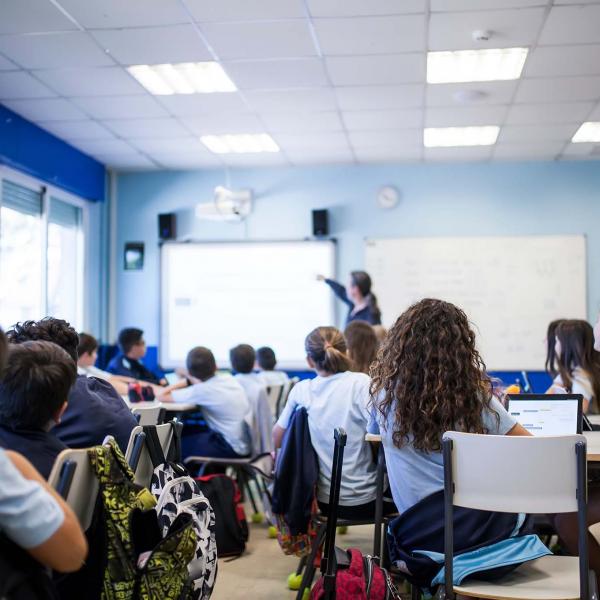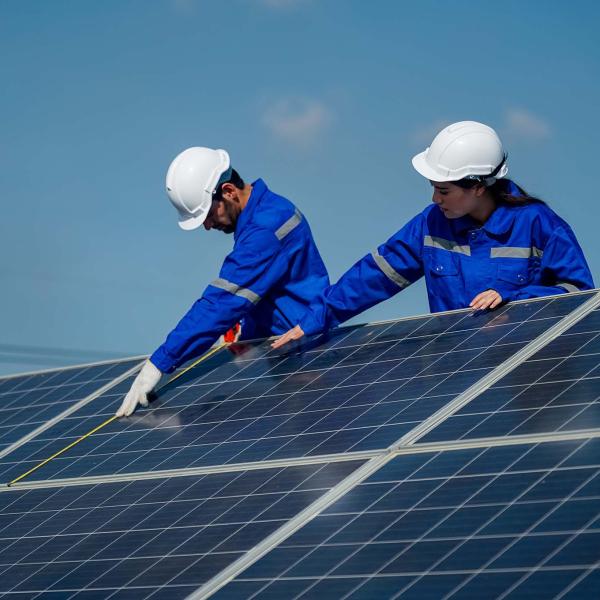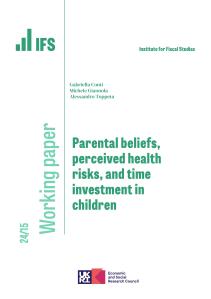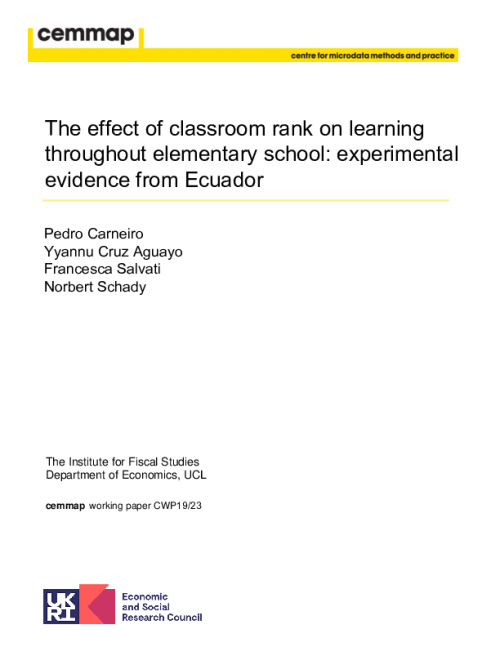We study the impact of classroom rank on children’s learning using a unique experiment from Ecuador. Within each school, students were randomly assigned to classrooms in every grade between kindergarten and 6th grade. Students with the same ability can have different classroom ranks because of the (random) peer composition of their classroom. Children with higher beginning-of-grade classroom rank have significantly higher test scores at the end of that grade. The impact of classroom rank is larger for younger children and grows over time. Higher classroom rank also improves executive function, child happiness, and teacher perceptions of student ability.
Authors

Research Fellow University College London
Pedro is a Professor of Economics at University College London and an economist in the IFS' Centre for Microdata Methods and Practice (cemmap).

Yyannú Cruz-Aguayo

Research Associate University of Essex
Francesca is an IFS Research Associate, a Research Fellow in the Research Department of the Bank of Italy and also a Research Affiliate at IZA.

Norbert Schady
Working Paper details
- DOI
- 10.47004/wp.cem.2023.1923
- Publisher
- Institute for Fiscal Studies
Suggested citation
Carneiro, P et al. (2023). The effect of classroom rank on learning throughout elementary school: experimental evidence from Ecuador. CWP19/23. London: Institute for Fiscal Studies. Available at: https://ifs.org.uk/publications/effect-classroom-rank-learning-throughout-elementary-school-experimental-evidence (accessed: 27 April 2024).
More from IFS
Understand this issue

Sure Start achieved its aims, then we threw it away
15 April 2024

Should the government levy VAT on private school fees?
9 November 2023

Behind the numbers: reassessing investment in skills and training
12 October 2023
Policy analysis

The short- and medium-term impacts of Sure Start on educational outcomes
9 April 2024

Sure Start greatly improved disadvantaged children’s GCSE results
9 April 2024

What you need to know about the new childcare entitlements
28 March 2024
Academic research

Willingness to pay for improved public education and public healthcare systems: the role of income mobility prospects
14 March 2024

Parental beliefs, perceived health risks, and time investment in children
15 April 2024

Labour market inequality and the changing life cycle profile of male and female wages
15 April 2024
